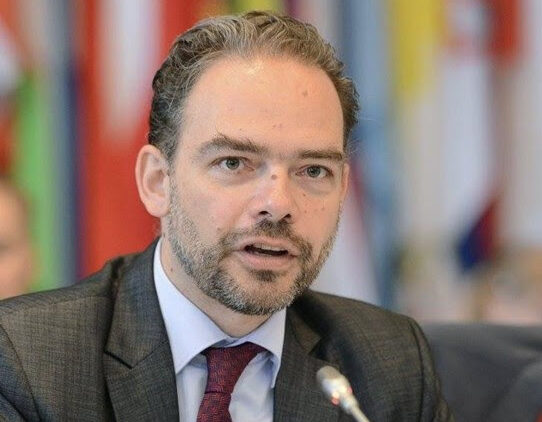The International Press Institute (IPI) has called on governments in Africa to meet their obligations of ensuring access to information, in accordance with relevant continental instruments including the Declaration of Principles for Freedom of Expression and Access to Information in Africa and the Model Law for Access to Information in Africa.
IPI made the call on September 28, 2023, in commemoration of the International Day for Universal Access to Information (IDUAI). The Institute recalled that in November 2015, UNESCO declared September 28 as International Day for Universal Access to Information to celebrate and recognize the international right to receive and impart information.
In light of the 2023 theme which recognizes “the importance of the online space for access to information”, IPI urged African governments to also safeguard access to and the safety of online spaces. It also called on them to create an enabling environment for the exercise of these rights both online and offline for journalists in light of the role they play in enabling access to information by the public.
The group emphasized that Article 9 of the African Charter on Human and People’s Rights provides that every individual shall have the right to access information, pointing out that this commitment is summarised its new resource toolkit ‘Foundations of Press Freedom in Africa’, which highlights the key international, regional, and sub-regional frameworks for the protection of media freedom, access to information, and the safety of journalists in Africa.
IPI noted that despite strong legal frameworks requiring states to ensure the public has access to information, governments across Africa are often in practice undermining this essential human right.
The group quoted Gilbert Sendugwa, Executive Director at the Africa Freedom of Information Centre (AFIC), in Uganda, who said “A good law is as good as its implementation and enforcement. Public officials sometimes are reluctant to disclose certain information where the wrong decisions may have been made or procedures not followed.” Gilbert also recommended that: “All African countries yet to adopt right-to-information laws should provide for independent information commissions while those with laws but without oversight should urgently amend the laws to provide an effective oversight”.
IPI noted that the challenges to access to information extend beyond FOI laws, citing its press freedom monitoring which it says shows that states continue to obstruct and restrict journalists’ ability to provide the public with relevant news and information. It cited Zimbabwe’s August 2023 general elections which it said witnessed several cases of both local and foreign journalists being barred from undertaking election coverage by either being denied access to a polling station, not being granted accreditation, or in other instances having their equipment seized. As a result, some journalists could not undertake their role as providers of public interest information during that critical process
It also observed that Internet shutdowns are also increasingly being used in Africa to prevent the public from accessing information and public-interest news, saying in August 2023, it joined the global civil society coalition #KeepItOn Coalition in condemning internet shutdowns in Senegal following the shutdown of mobile internet on July 31 and the blocking of TikTok on August 2. It added that Internet shutdowns and mobile connectivity restrictions have also happened in Mauritania and Guinea.
Another weapon used by state, according to IPI is the growing problem of Cyber attacks that disrupt the media’s ability to reach audiences. It stated that IPI members Somali Journalists Syndicate and Daily Maverick were also targeted by distributed denial of service (DDoS) attacks which made it difficult for their audiences to access information.
Nompilo Simanje, IPI’s Africa Advocacy and Partnerships Lead, noted that “Journalists and civil society in many countries in Africa are instead increasingly faced with a myriad of restrictions and challenges that undermine their ability to share critical news and information.”
IPI said these listed incidents highlight the need for countries in Africa to urgently improve access to information both online and offline for journalists and the public. It therefore called on governments in Africa to take concrete action to comply with the standards laid out in regional instruments.







